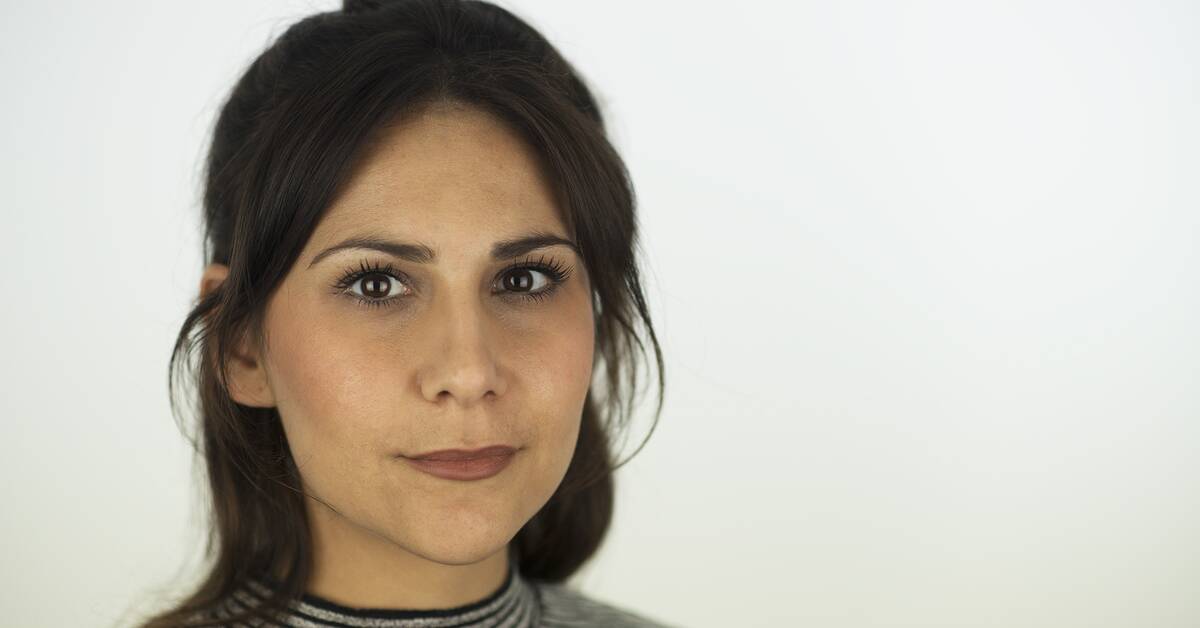Rosemary talks thoughtfully and explains what the courtesy might look like.
That you might flatten your hair so it becomes straighter - curbed.
That you learn to speak a little nicer and with a lighter tone.
Simply to behave milder.
That you are constantly aware of how "different" you are, and that it can go so far that you can become racist towards yourself.
That's where it hit me.
Blonde and cool
After that movie day, I was six years old again.
Then everything I wanted to be was blonde and cool.
It's my word to describe that "mild" behavior.
I did not want brown hair, I did not want to be different and I absolutely did not want to be called Gilda.
It is not uncommon for children to want what others have or look like others around you do.
Have several in the class of glasses, everyone else wants it.
If several friends have braces, then you want the dentist to prescribe the same for your own teeth.
And was there anything more delicious than a broken arm with plaster that all classmates signed?
We can probably all recognize ourselves in that, but it is something that hurts extra when there are external (and for that matter internal) factors you want to get rid of.
Things that really make themselves visible just because you feel or are told that you are "wrong".
And exactly what it is differs from society to society.
Free yourself from racism
People that photographer Linda Hörnqvist and I have met have managed to identify something within themselves that few dare to approach.
A pandora's box of emotions as member Mei called it.
And while we were there in Sunnyvale, California, Linda and I were constantly discussing.
Both with different backgrounds, experiences and perceptions.
Our eyes were opened to each other's realities, something that might not have happened if we did not dare to dig a little deeper beyond ordinary collegial conversation.
Because that is exactly what Pastor Ron believes is the key to a society being able to free itself from racism.
The majority know that it is wrong and that it is not something you want to associate with, to be a racist.
But at the same time, we carry preconceived notions and prejudices that not only prevent societies from moving forward but that they actively diminish and harm people.
Everyone is against racism, but at the same time no one is racist.
How does that work?
he asks himself.
The value of competence
Not seeing color is not the solution, it does no one any favors.
But it is what is added to the "color" we see, that is where the shoe squeezes, the pastor explains.
For Tiffany, one insight has been that when she sees academics who are not white, a concern is raised within her as to whether the person in question is as expert as her education suggests.
For someone who is on the other side, it is constantly necessary to refute assumptions about quotas, for example.
That one's competence is never worth as much just because one's name and appearance are beyond the societal, usually white, norm.
Pastor Ron equates behavior with seeing invisible people.
"Would not like to be called anything else"
The work with this program has been a real insight in many ways.
That we all somewhere have experience of both the experience and the act of racism.
But it was also a consolation to that six-year-old girl you once were.
To be able to feel proud in the adult version of everything you have experienced and can, much thanks to your background.
Thanks to being "different".
Today I would not want any other color on my hair.
I love my Iranian background and that I was born and raised in Sweden.
And even though I spelled my name countless times, and will probably continue to have to, I would not want to be called anything other than that.
Gilda: hard G, I, L, D, A.
Hamidi-Nia: H, A, M as in Martin, I, D, I, hyphen, N, I, A as the number nia.

